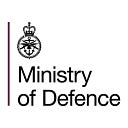Operation TORAL explained: Striving for peace in Afghanistan
British Forces remain in Afghanistan helping to tackle terrorism and restore stability in the region, here are the three things you need to know.
For over 19 years British forces have been in Afghanistan. In 2014, combat operations ended and British and NATO Forces continued to commit significant resources to Afghanistan with the aim of helping to rebuild and provide ongoing security in the region.
Operation TORAL is the codename given to the British element of NATO’s Resolute Support mission in Afghanistan.
Currently deployed to Afghanistan are soldiers from 2 SCOTS, Royal Regiment of Scotland. They are providing security in the form of the Kabul Security Force.
Here are three things you need to know:
1. What is NATO’s Resolute Support Mission?
Resolute Support is a NATO-led non-combat mission to train, advise and assist the Afghan National Defence and Security Forces.
It helps the Afghan security forces and institutions to develop the capacity to defend Afghanistan. Protecting their people in a sustainable manner.
The Resolute Support Mission is currently made up of around 17,000 personnel from 39 NATO Allies and partner countries.
2. What are the UK Armed Forces doing in Afghanistan?
Alongside military activities, the UK Armed Forces support a wide range of projects including improving education, healthcare, economic growth and local governance in Helmand and across the country.
These have been made possible by improved security provided by international troops and the Afghan National Security Forces.
Force Protection
Stationed in Kabul, the British soldiers lead the 7-nation-strong Kabul Security Force (KSF). The KSF provides force protection and protected mobility for coalition mentors as they advise around the country’s capital.
As part of the KSF, the British Army’s Quick Reaction Force — an armed military unit capable of rapidly responding to developing situations — is helping provide vital security for Afghan security forces.
Toral Aviation Detachment (Puma)
The RAF’s Puma helicopters and their crews deployed in Kabul provide helicopter support to the NATO forces.
The Puma detachment enables mobility within Kabul, preventing NATO forces having to travel by road where the risk is higher.
Being the movement asset of choice in Kabul, the Puma’s agility and the capability of the crews are unparalleled.
They operate in all conditions — even the harsh Afghan winters.
3. Why Afghanistan?
Many will remember the devasting terrorist attacks against the United States on 11 September 2001. Nearly 3,000 people were killed, 67 of those were British.
9/11, as it became known, was the work of Al-Qaeda terrorists, led by Osama bin Laden. At that time they enjoyed the freedom and security of Afghanistan while under the protection of the Taliban regime.
The UK stood alongside international allies against the actions of the terrorist group.
For 13 years, from 2001 to 2014, British Forces were involved in combat operations in Afghanistan, fighting terrorism. This was known as Operation HERRICK.
Since 2014, when combat operations ended, British and NATO troops continue to this day to train, assist and advise the Afghan security forces — this is Operation TORAL.
